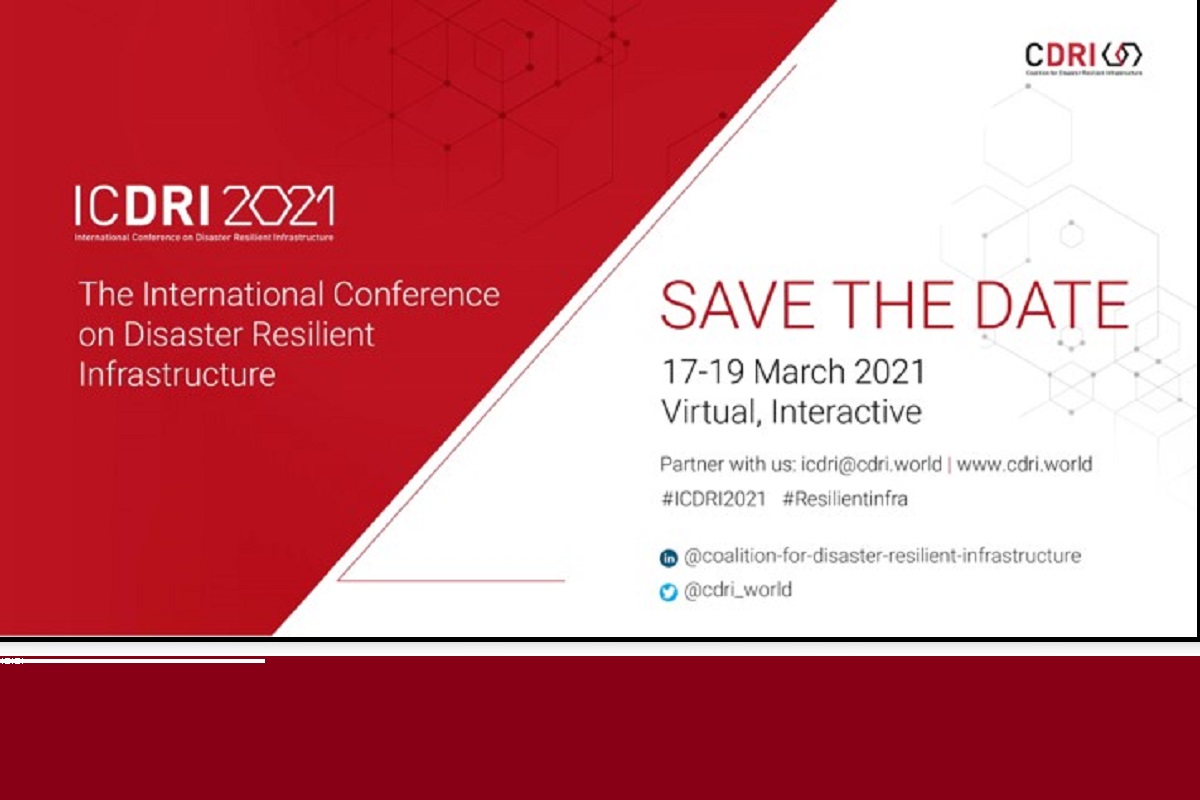Mohanlal, Shreya Ghoshal, and others join PM Modi’s call to tackle obesity
PM Modi's initiative encourages Indians to reduce cooking oil consumption by 10% to tackle rising obesity. Celebrities, athletes, and leaders are joining the movement.
Launched by Prime Minister Narendra Modi at the UN Climate Action Summit at New York on 23 September 2019, the Coalition for Disaster Resilient Infrastructure (CDRI) is a partnership of national governments, UN agencies and programmes, multilateral development banks and financing mechanisms, the private sector, and knowledge institutions that aims to promote the resilience of new and existing infrastructure systems to climate and disaster risks in support of sustainable development.

Prime Minister Narendra Modi is scheduled to give the inaugural address for the event. (Image: Twitter/@IndEmbMexico)
Coalition for Disaster Resilient Infrastructure (CDRI) in partnership with member countries, organizations and institutions hosts the International Conference on Disaster Resilient Infrastructure – ICDRI 2021, a three-day Interactive Virtual Conference scheduled to be held from 17 – 19 March 2021.
Following the successful International Workshops on Disaster Resilient Infrastructure (IWDRI) that were held in 2018 and 2019, ICDRI 2021 aims to deliberate on significant international commitments for building disaster and climate-resilient infrastructure.
Advertisement
Prime Minister Narendra Modi is scheduled to give the inaugural address for the event. The Prime Ministers of the United Kingdom and Fiji have also been invited for speaking in the inaugural session.
Advertisement
The three-day Interactive Virtual Conference will witness a plethora of eminent personalities, key government dignitaries, specialists and entrepreneurs from across the globe.
The speakers will be sharing their expert inputs on various Forums – Sector, Technical, Policy and Regional, on relevant subjects, namely –Resilient Infrastructure in the context of International Commitments, Health Infrastructure Resilience, Global Risk Assessments, Innovations and Emerging Technologies, Digital Infrastructure Resilience, Urban Resilience, Finance for Resilient Infrastructure, Recovery and Reconstruction, Governance and Policy and specific sessions for Small Island Developing States (Pacific Island and Caribbean Island Countries).
According to Sandeep Poundrik, Director General, CDRI, “The esteemed panellists at ICDRI 2021 will deliberate and discuss pressing questions pertaining to Disaster Resilient Infrastructure, and its importance in the world, given the increasing severity and frequency of disasters. They will also discuss the impact of COVID-19 on infrastructure, and on achieving the Sustainable Development Goals (SDGs) and the Sendai Framework for Disaster Risk Reduction (SFDRR) targets.”
Over 700 people from 96 countries have registered for the conference and will be participating in the event.
In order to strengthen the market for disaster and climate-resilient infrastructure systems, Coalition for Disaster Resilient Infrastructure (CDRI) has also launched an online exhibition ‘CDRI Resilient Infrastructure Marketplace’ to match the demand from CDRI Member Countries that require technical services and assistance with companies, universities and organizations that can provide services to meet this demand.
The Marketplace encourages and invites solution providers to showcase and demonstrate their knowledge, design solutions, finance and insurance instruments or technology products online through videos, posters or presentations to the ICDRI participants.
Registered participants will be able to access the exhibition space through the ICDRI events page, 24 hours a day for all three days of ICDRI.
About CDRI
Launched by Prime Minister Narendra Modi at the UN Climate Action Summit at New York on 23 September 2019, the Coalition for Disaster Resilient Infrastructure (CDRI) is a partnership of national governments, UN agencies and programmes, multilateral development banks and financing mechanisms, the private sector, and knowledge institutions that aims to promote the resilience of new and existing infrastructure systems to climate and disaster risks in support of sustainable development.
CDRI promotes rapid development of resilient infrastructure to respond to the Sustainable Development Goals’ imperatives of expanding universal access to basic services, enabling prosperity and decent work.
Advertisement